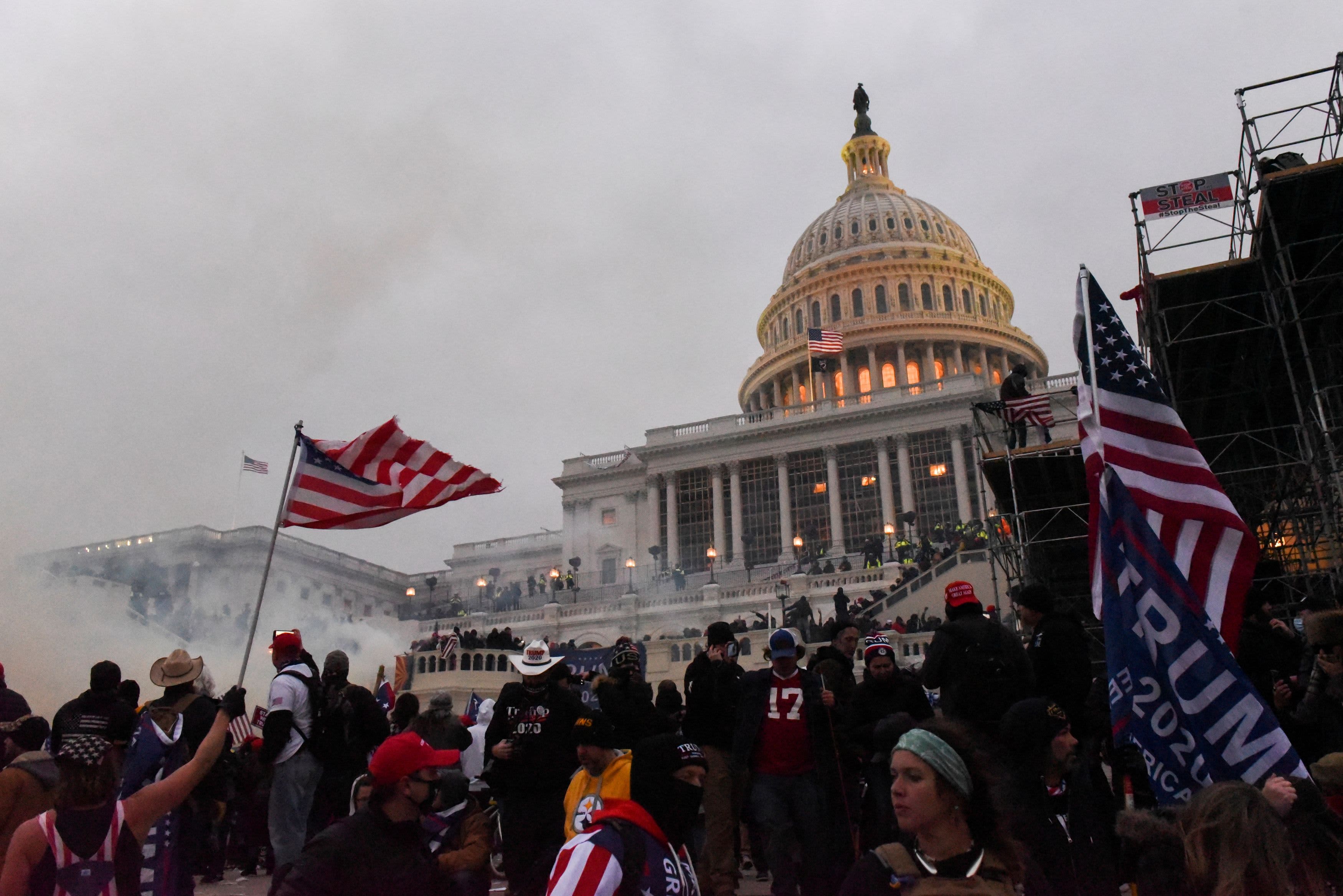
Police clear the U.S. Capitol Building with tear gas as supporters of U.S. President Donald Trump gather outside, in Washington, January 6, 2021.
Stephanie Keith | Reuters
Lawmakers in the House hope to reach an agreement as soon as this week on the creation of a bipartisan commission to investigate the Jan. 6 invasion of the U.S. Capitol, a senior Democratic aide told CNBC on Tuesday.
House Speaker Nancy Pelosi, D-Calif., has deputized House Homeland Security Committee Chairman Bennie Thompson, D-Miss., to finalize negotiations with Rep. John Katko, R-N.Y., the panel’s ranking member, the aide said.
If a deal is struck in time, a bill to create the commission could be brought to the House floor by next week, according to the Democratic aide.
“As things are fluid, we cannot comment at this time,” said Adam Comis, a spokesman for the Homeland Security Committee, in an email. A spokesperson for the committee’s GOP minority did not immediately respond to CNBC’s request for comment.
But House Majority Leader Steny Hoyer, D-Md., appeared to confirm later Tuesday that the negotiations were underway.
“I believe that that Chairman Thompson and ranking member Katko are working on a bipartisan commission,” Hoyer told reporters, adding he believes their discussions are “productive.”
“Do all the Republicans want to do it? I can’t say that but in any event, I’m hopeful that we will get to an agreement that will enjoy bipartisan support,” Hoyer said. “And I hope we get to it soon so we can put it on the floor next week.”
The development on Capitol Hill, first reported by Punchbowl News, follows a monthslong partisan logjam over the details of the 9/11-style investigative panel.
Pelosi in February said Congress would establish a commission to look into the deadly Jan. 6 invasion by a mob of former President Donald Trump‘s supporters, which derailed efforts to confirm President Joe Biden‘s Electoral College victory.
But disagreements quickly arose over the initial terms of the commission, which would have included seven Democratic appointees and just four Republicans and would have given the Democrats unilateral power to issue subpoenas.
In April, Pelosi said she would agree to split the panel evenly between the two parties and change the rules for issuing subpoenas.
Another sticking point is the scope of the probe. Democrats want the commission to focus solely on the Jan. 6 invasion and the circumstances surrounding it, while Republicans have pushed to expand its parameters to include violence at separate protests attributed to far-left instigators.
Other investigations into the Capitol riot are already underway. Michael Bolton, inspector general for the U.S. Capitol Police, testified before lawmakers this week about problems with the department’s operations in the lead-up to the attack.
Pelosi also tasked retired Army Lt. Gen. Russel Honore with leading a review of Capitol security. Honore in March reported deficiencies in Capitol officers’ training, staffing and equipment and made numerous recommendations.




